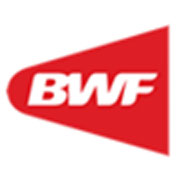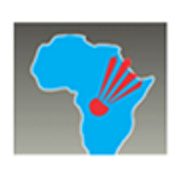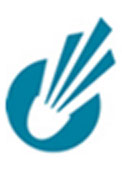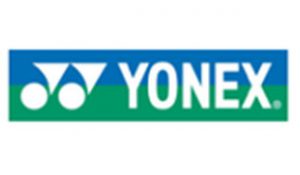Text by BWF
With three titles this season, Rachel Honderich and Kristen Tsai have had an encouraging season, but the Canadians are looking at improving further, seeking to better their performances at the upper tier of the circuit.
Honderich and Tsai won the Pan Am Individual Championships, the Brazil International Challenge and the Pan Am Games, besides making the quarterfinals of the Canada Open. These performances have helped them climb to No.30 on the world rankings. With the last three of those results coming in the qualifying period for Tokyo 2020, the Canadians are now at No.11 in the Race to Tokyo rankings.
Still, Honderich believes that their campaign to qualify for Tokyo 2020 will be based on a “balance” of competing at top-tier tournaments and lower-level ones.
“We had a good start, we won the Pan Am Championships, and then the Brazil Challenge, then Canada did well in the Sudirman Cup,” Honderich said during the Japan Open, which was a test event for Tokyo 2020. “We had a good start to the year, playing those Challenger tournaments in Pan America, now we’re going to Asia and Europe, and we’re hoping to gain in those tournaments competing against even stronger teams. It’s been a good start, but we’re not satisfied, we’re trying to set higher standards, this is a good stepping stone, but hoping to get better results going forward.
“I think we’ll be giving ourselves the opportunity to compete against the top teams and see what we need to work on. But as well, playing the Challengers and the Super 100s to give us the chance to win those tournaments. So we’re trying to get a good balance, play the bigger tournaments, but also the Challengers and the Super 100s, so we can get the experience of what it’s like being a higher seed and the pressure of having to win, versus these bigger tournaments where we’re the underdogs. So it’s a good balance, we’re improving both ways.”
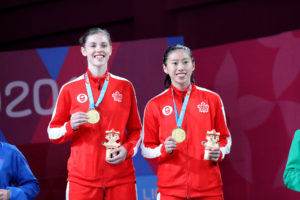 One of the challenges they face in their campaign to qualify to Tokyo is funding.
One of the challenges they face in their campaign to qualify to Tokyo is funding.
“A few of us get government support. It’s a monthly allowance, so you can use it however you want, whether is tournaments, training, hotel expenses,” says Honderich. “But it’s not enough to cover an Olympic year specially, when you’re playing up to 20 tournaments. All those expenses surpass what we’re getting, so each athlete finds other ways to get it, whether it is through clubs or self-funding. It’s definitely a challenge.”
In the midst of the qualifying season, Honderich and Tsai have different approaches to their academics. Honderich is in the third year of her kinesiology degree and has decided to complete it after the Olympics. Tsai is almost through with her Masters in criminology and spends time on her studies between tournaments.
“I’m shutting out my studies this year,” says Honderich. “It’s hard to find the time. I want to give myself the best chance (of qualifying). My degree is related to sport. Some of the stuff I learn applies to badminton, so the last couple of years it was pretty cool learning things that I can use to improve my performance.”
Tsai, who grew up watching crime shows on TV, is working on her thesis. “Hopefully I’ll be done soon. I’m done with all my course work. Right now I can do it whenever I have time out between tournaments. It should’ve been done a while ago, but I’m taking it slow.”

